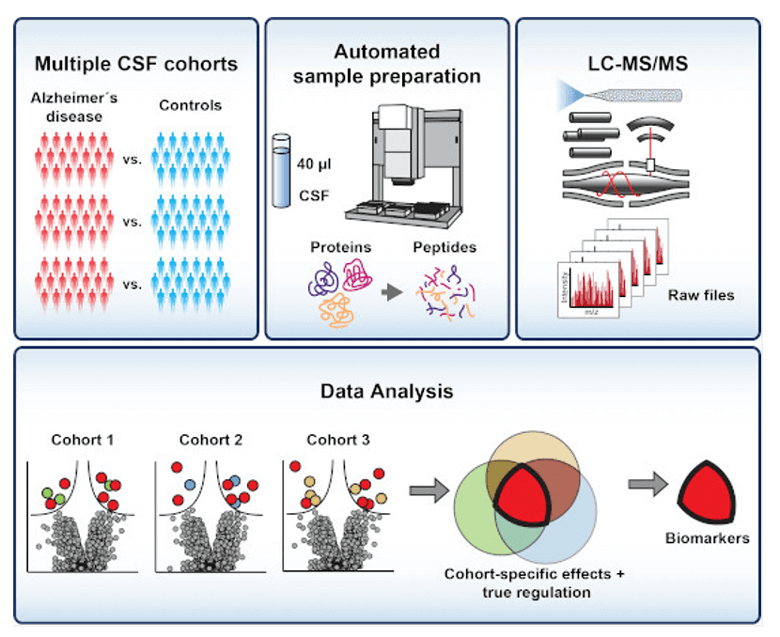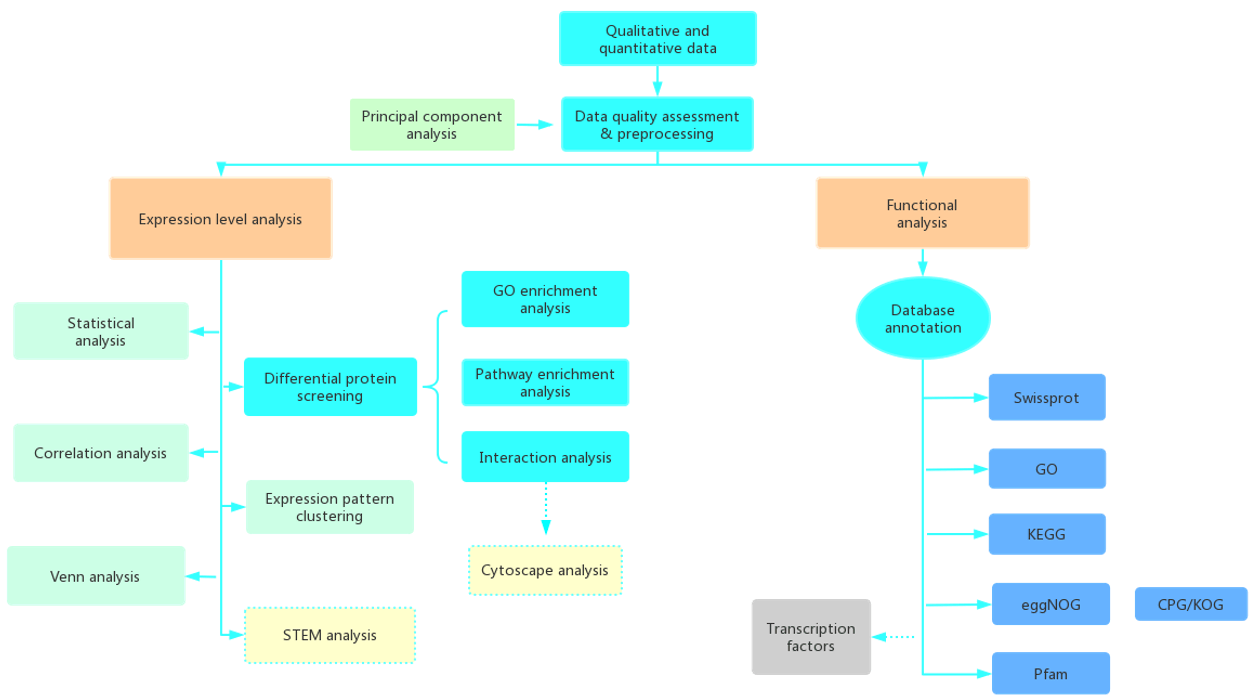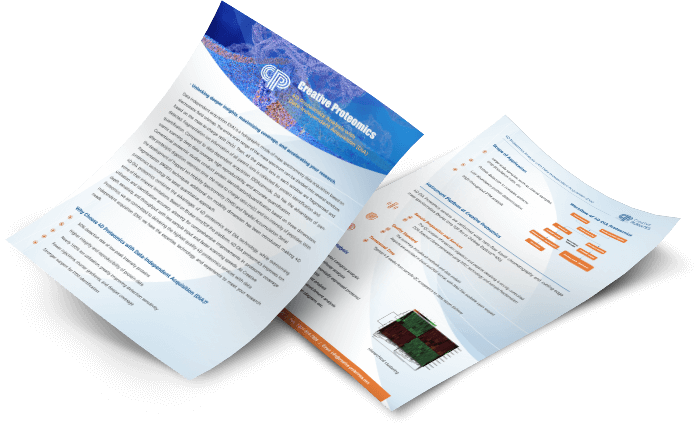Cerebrospinal Fluid (CSF) Protein Quantitative Proteomics Solutions
CSF proteomics is a branch of proteomics. Through core analysis technology, different types of CSF proteins can be separated to find differentially expressed protein sites. CSF is directly connected with the extracellular fluid in brain tissue, and when the disease occurs, it will affect the composition of some peptides and small proteins in CSF. The study of cerebrospinal fluid proteomics seeks to understand a deeper level of the physiological and pathological changes in the central nervous system (CNS), and this technology provides strong support for the diagnosis and treatment of CNS diseases, and is of great significance for the diagnosis, treatment and prognosis of CNS diseases.
At present, mass spectrometry (MS)-based proteomics has become a very powerful technique for analyzing protein abundance levels, modifications and interactions, and important discoveries have been made in biological and biochemical research (including neuroscience). However, due to various technical and conceptual limitations in body fluids, mass spectrometry has not been able to progress well, which affects the repeatability, stability, and quantitative quantity.
However, with the development of data-independent acquisition technology (DIA), the realization of body fluid proteomics has become possible. DIA is an unbiased collection of all signals within the scanning range of the mass spectrum and it is one of the preferred methods for biomarker studies on large cohort samples with holographic scanning, high reproducibility, stability, high accuracy and traceability.
Deep proteomic analysis of CSF using DIA holographic scanning proteomics technology enables a large cohort of high-throughput detection to find novel diagnostic markers for neurological diseases, which is the foundation for future biomarker studies for early diagnosis, prognosis, and treatment outcomes of neurodegenerative diseases.
Our CSF Protein Quantitative Service
We analyze CSF proteins using advanced DIA proteomics technology to reveal a large amount of disease-related functional information in high-throughput mode for a large volume of CSF samples, helping you identify novel biomarkers associated with related diseases. We also offer highly multiplexed targeted proteomics with absolute quantification for customized panels of proteins.
Workflow
 A robust proteomics workflow quantifies more than 1,000 proteins in cerebrospinal fluid. (Jakob M Bader, et al. Mol Syst Biol 2020)
A robust proteomics workflow quantifies more than 1,000 proteins in cerebrospinal fluid. (Jakob M Bader, et al. Mol Syst Biol 2020)
Data Analysis

Advantages
- High accuracy: QC CV as low as 25% for large projects
- High throughput, 1000-2600 proteins can be quantified at once
- Quantitatively identify nearly all detectable molecules, covering low abundance proteins/peptides
- High repetition rate: repeatability increased by 30% and up to 90%
- Complete and comprehensive sample information storage in the first analysis
- Standard data and advanced data analysis
- Cost-effective
Sample Requirements
| Sample Type | Protein | # of Cell | CSF(fresh frozen) |
| Quantify | 100 ug | 1×107 cells | 500 uL |
Report
- Experimental steps
- Relevant experimental parameters
- Mass spectrometry spectra
- Raw data
- Proteomics analysis results
Since we provide DIA technology service, we have accumulated a lot of experience not only in the detection of a large cohort of conventional samples, but also can provide one-stop service of DIA+PRM+machine learning for biomarker studies, tumor-based proteomic typing and large clinical sample proteomic analysis based on next-generation chromatography (Evosep DIA). Please feel free to contact us for a free consultation.
Reference:
- Jakob M Bader, et al. Proteome profiling in cerebrospinal fluid reveals novel biomarkers of Alzheimer's disease. Mol Syst Biol (2020)16:e9356
* For Research Use Only. Not for use in the treatment or diagnosis of disease.

 A robust proteomics workflow quantifies more than 1,000 proteins in cerebrospinal fluid. (Jakob M Bader, et al. Mol Syst Biol 2020)
A robust proteomics workflow quantifies more than 1,000 proteins in cerebrospinal fluid. (Jakob M Bader, et al. Mol Syst Biol 2020)

 4D Proteomics with Data-Independent Acquisition (DIA)
4D Proteomics with Data-Independent Acquisition (DIA)